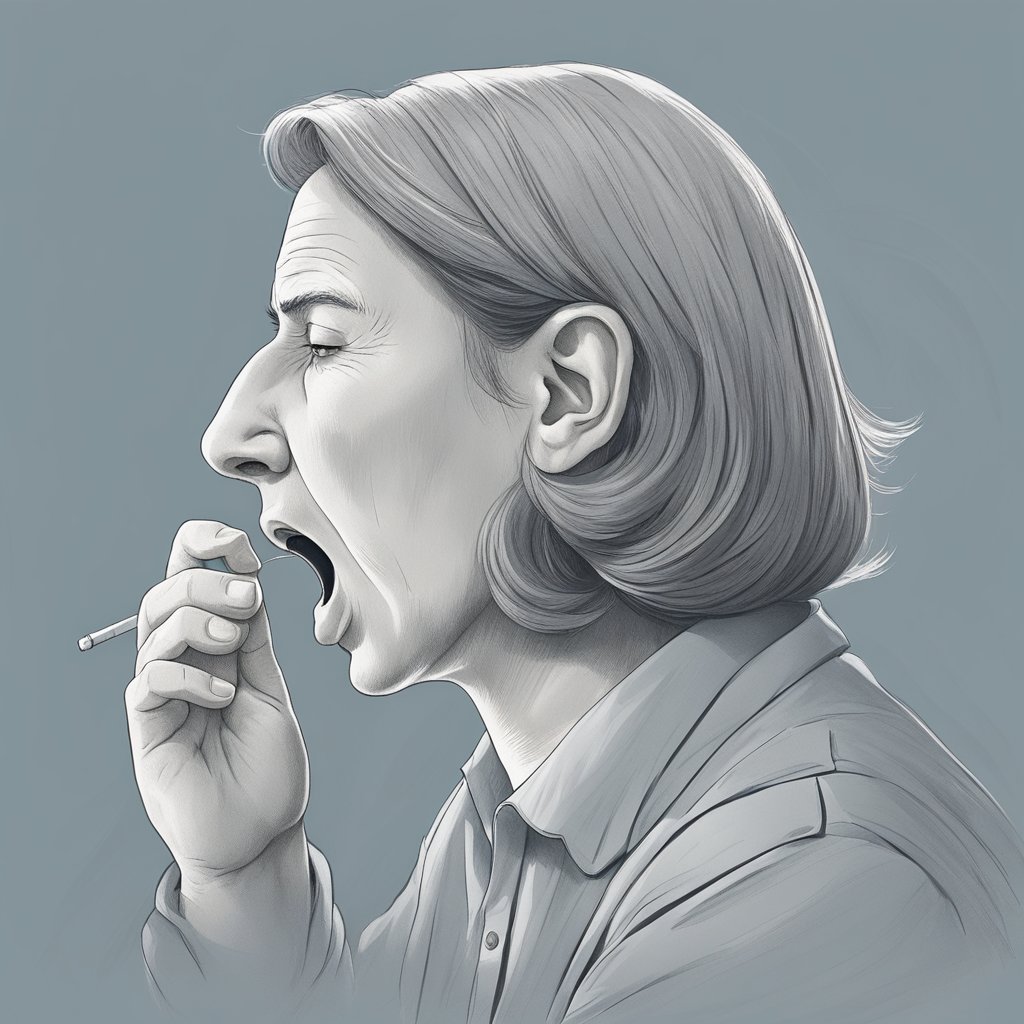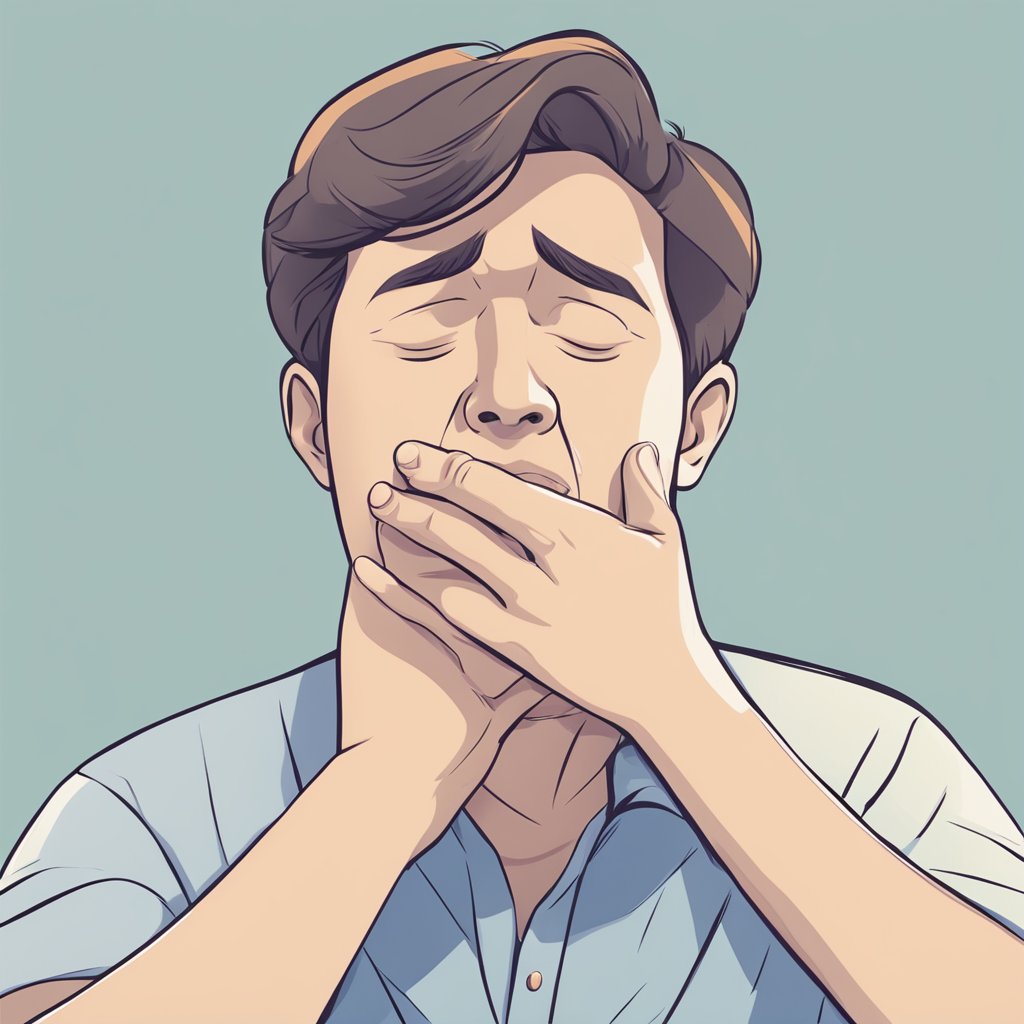Constant throat clearing and shortness of breath are symptoms that can significantly impact daily life and well-being. For individuals experiencing these signs, it is essential to understand that they can be indicative of a variety of conditions, ranging from mild allergies to more serious pulmonary or gastrointestinal disorders. Awareness and timely intervention are key to managing these symptoms and improving quality of life.

It is crucial to seek medical advice to obtain an accurate diagnosis, which is typically achieved through a comprehensive evaluation that may include medical history, physical examination, and potentially diagnostic tests. Recognizing the underlying causes is a fundamental step before initiating any treatment plan. Treatment may vary greatly depending on the specific condition, but may often include medication, lifestyle modifications, or in some cases, surgical interventions.
Key Takeaways
- Recognizing signs like throat clearing and breathlessness is crucial for health.
- A correct diagnosis is essential for effective treatment.
- Treatment options can vary, emphasizing the need for a personalized approach.
Understanding Throat Clearing and Shortness of Breath

Throat clearing and shortness of breath are symptoms that can stem from various conditions. I will discuss how to recognize these symptoms and explore their common causes.
Identifying Symptoms
Throat Clearing: It is a frequent need to clear one’s throat due to a sensation of something being stuck in the throat. It can be sporadic or chronic.
- Frequency: Occurs often, can persist throughout the day.
- Sensation: A feeling of mucus or irritants in the throat.
Shortness of Breath: This refers to the feeling of being unable to take a deep breath or experiencing a tight sensation in the chest.
- Timing: Can happen during rest or physical activity.
- Associated Symptoms: May include wheezing or coughing.
Common Causes
Throat clearing and shortness of breath can arise from issues in the throat, nose, lungs, or heart. Common causes include:
Allergies:
- Source: Typically related to the nose and throat.
- Reaction: Body reacts to allergens, causing inflammation and mucus production.
Respiratory Infections:
- Locations: Can affect either the upper respiratory system (throat/nose) or lower respiratory system (lungs).
- Symptoms: Inflammation and excessive mucus lead to throat clearing; infections in the lungs can cause shortness of breath.
Asthma:
- Lungs: Airways in the lungs become inflamed and narrow.
- Effect: Results in shortness of breath and may trigger an increased urge to clear the throat.
Gastroesophageal Reflux Disease (GERD):
- Cause: Stomach acids move up into the throat.
- Symptoms: Leads to chronic throat clearing and can also cause breathing difficulties.
Heart Conditions:
- Impact: Certain heart conditions can reduce oxygen to the body, leading to shortness of breath.
- Note: Heart issues do not typically cause throat clearing, but both symptoms can co-occur.
Diagnostic Approaches
In this section, I’ll outline the steps and methods used by healthcare professionals to diagnose conditions that might cause constant throat clearing and shortness of breath.
The Role of Medical History
I begin by taking a comprehensive medical history, which is crucial to understanding any underlying health conditions. A detailed history can reveal patterns or triggers related to symptoms such as throat clearing and shortness of breath. For instance, if I suspect gastroesophageal reflux disease (GERD) or laryngopharyngeal reflux (LPR), I’ll inquire about the frequency of reflux symptoms. In cases where asthma or COPD is possible, I’ll ask about past respiratory issues, smoking history, and instances of wheezing or breathlessness. Identifying a history of allergies can also be key in directing the diagnostic process.
Physical Examination and Tests
During the physical examination, I focus on the throat, lungs, and heart. I listen for any abnormal sounds with a stethoscope to assess lung function and to check for signs of a heart attack or other cardiac conditions. If symptoms are persistent and suggest a condition like asthma, COPD, or heart issues, additional tests are required:
- Blood tests: These can pinpoint infections or inflammation which may contribute to the patient’s symptoms.
- Endoscopy: An endoscope might be used to visually inspect the throat and upper digestive tract for signs of irritation or reflux.
- Lung function tests: These assess the performance of the lungs and can help detect asthma or COPD.
- Allergy testing: This can be imperative to determine if allergies are the cause of throat irritation.
By integrating the findings from the medical history with the physical examination and specialized tests, I can establish a precise diagnosis and tailor an effective treatment plan.
Treatment Strategies
I understand that effective management of constant throat clearing and shortness of breath can be achieved through appropriate medications, therapies, and lifestyle modifications. Tailoring the treatment to the underlying cause is crucial.
Medications and Therapies
Medications:
To address throat clearing and shortness of breath, I consider a range of medications based on the patient’s specific condition:
- Antibiotics: If an infection is present, antibiotics may be necessary.
- Antihistamines and Decongestants: For allergic reactions, antihistamines can reduce symptoms, and decongestants can ease nasal congestion.
- Nasal Sprays: Steroidal nasal sprays can alleviate inflammation in the nasal passages.
- Allergy Shots (Immunotherapy): These are effective for long-term allergy management.
- ACE Inhibitors: If cough is due to these medications, alternative drugs might be considered.
Therapies:
In some cases, specific therapies are recommended:
- Speech Therapy: To combat habitual throat clearing.
- Breathing Exercises: To improve breath control and reduce shortness of breath.
Lifestyle and Home Remedies
Adjusting daily habits can significantly improve symptoms:
- Hydration: Increasing fluid intake can thin mucus, making it easier to clear.
- Humidifiers: Adding moisture to the air can relieve throat irritation.
- Avoid Irritants: Steering clear of smoke and pollutants reduces throat inflammation.
- Dietary Adjustments: Limiting foods that can trigger reflux or allergies may help.
Finally, while surgery is a treatment option in some severe cases, it is generally considered only when other treatments have not provided relief. Assessing the need for surgical intervention requires thorough evaluation by healthcare professionals.
Preventive Measures and Management
Managing constant throat clearing and shortness of breath involves adopting certain lifestyle changes and preventive habits to alleviate symptoms. My focus is to outline strategies that are simple yet effective.
-
Habitual Changes:
- I recognize the importance of tobacco cessation as a significant step. If I’m a smoker, I will quit smoking and avoid exposure to tobacco smoke to improve my respiratory health.
- To further aid my throat and lung health, I avoid smoking and second-hand smoke exposure, as they can exacerbate symptoms.
-
Dietary Adjustments:
- I ensure my diet includes anti-inflammatory foods and stays balanced to maintain a healthy weight, as obesity can contribute to respiratory issues.
- Staying hydrated is vital; warm teas may help soothe my throat.
-
Lifestyle Management:
- Regular exercise can strengthen my respiratory muscles, but I ensure it’s moderate and aligned with my fitness level to prevent overexertion.
- Limiting alcohol consumption is beneficial since it can trigger mucous production.
-
Stress Reduction:
- I practice stress management techniques like meditation and deep breathing to prevent stress-induced throat clearing.
-
Weather Considerations:
- I am mindful of the weather, as both very cold and very hot, humid conditions can trigger throat irritation and breathing difficulties.
My management plan also includes consulting a healthcare provider to identify any underlying conditions contributing to my symptoms and to receive personalized advice. Keeping an eye on potential irritants in my immediate environment helps me adjust my preventive measures accordingly. Regular check-ups aid in maintaining my health and catching any new developments early on.
Frequently Asked Questions
In this section, I cover common concerns related to constant throat clearing and shortness of breath, focusing on remedies, potential causes, and treatments.
What are some effective remedies for constant throat clearing?
My experience has shown that staying hydrated helps thin mucus, making it easier to clear. Humidifiers can also alleviate throat irritation by moistening the air.
Can constant throat clearing be an indication of a serious medical condition?
Yes, it can be. If throat clearing persists, it may signal conditions like gastroesophageal reflux disease (GERD) or chronic bronchitis, and medical evaluation is advisable.
What underlying causes might lead to frequent throat clearing and shortness of breath?
Frequent throat clearing and shortness of breath can be caused by allergic reactions, asthma, GERD, respiratory infections, or even certain cardiovascular issues that warrant thorough assessment.
Are there specific treatments for mucus buildup causing throat clearing and breathing difficulties?
Treatments often include expectorants, steam inhalation, and avoiding irritants like smoke. In cases of infection, physicians may prescribe antibiotics or steroids.
How can lung conditions contribute to the need for frequent throat clearing?
Lung conditions such as chronic obstructive pulmonary disease (COPD) can increase mucus production, leading to constant throat clearing in an effort to keep the airways clear.
Which medications have a side effect of causing the need to clear the throat regularly?
Medications like ACE inhibitors, commonly prescribed for blood pressure, can cause a dry cough leading to the need for frequent throat clearing. It’s important to consult a doctor if this occurs.